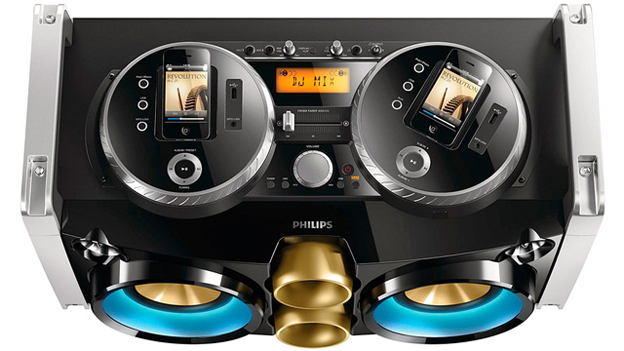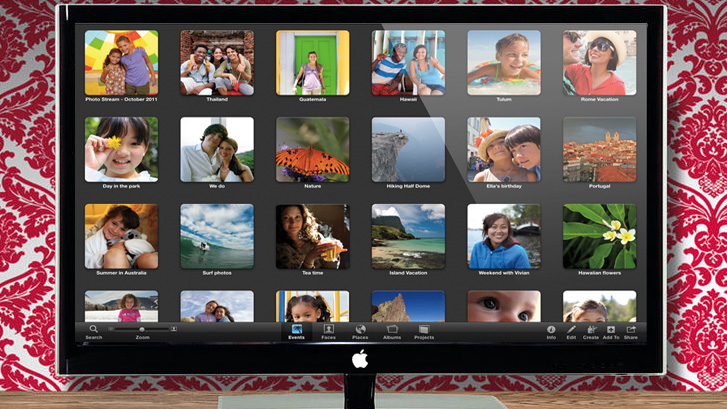Why your phone's killing the consumer electronic kings
That's (unprofitable) entertainment

Another day, another firm gets the hell out of the consumer electronics business: Philips has decided it wants to spend more time with its colour changing lightbulbs, and it's ditched its home entertainment division.
As The Proclaimers almost put it: Blu-Rays no moar! Headphones no moar! Speakers no moar! Gadgets no moar!
The name will live on, but the company's mind is elsewhere: in medical devices, personal grooming and kitchen appliances.
The reason? With the exception of LG, Samsung and Apple, most CE firms are losing astonishing amounts of money.
As EE Times reported last year, the world's best-known firms are bleeding money in the consumer electronics business. In the financial year ending March 2012, Panasonic lost 772 billion yen (about $9.2 billion), Sony 457 billion ($5.5 billion) and Sharp 376 billion ($4.5 billion).
Deja View
To an extent, history is repeating here: in the 1980s US consumer electronics firms were beaten to a pulp by leaner, aggressive competitors. In the 80s those competitors were Japanese, but these days they're Korean. As they do to the Japanese firms what the Japanese ones did to the American ones, Chinese firms are gearing up to take on the Koreans.
There are other factors too, of course, including physical and economic earthquakes.
Get daily insight, inspiration and deals in your inbox
Sign up for breaking news, reviews, opinion, top tech deals, and more.
The biggest factor, though, is the way tech is changing the way we do things. While we may be tightening our belts and cutting back on non-essential purchases, we're still buying stuff. We're just not buying the stuff the famous CE firms want us to.
I own all kinds of consumer electronics and rarely use them. I take more photos with my phone than with a camera, watch more movies on iTunes and Netflix than I do on DVD, listen to music on my phone in the gym and on an iPod in the car. When I listen to radio it's on my computer, or on the iPlayer app.
Your ecosystem may differ - you may be a paid-up Google Player, for example - but you'll be doing much the same. You'll change your phone far more often than you change your TV.
Can Apple answer the call?
That's great news for the firms that saw it coming, such as Apple and Samsung, but it's awful news for the ones that didn't. While margins of 5 per cent in TV manufacturing are considered miraculous, Samsung's currently making overall margins of 17.4 per cent, and analysts were dismayed when Apple's margin dropped to a titchy 38.6 per cent. Those figures are largely due to selling smartphones.
TVs, radios, Blu-Ray players... these are all commodity devices like fridges or cookers or microwaves: you have stacks of firms selling essentially the same thing in the same places at the same price. That means there's precious little room for profit. Philips calls the sector "margin dilutive", which means there's so little profit there's hardly any point in bothering.
This is why everyone's clambering on the Apple accessory bandwagon, and why some CE firms are praying for an Apple iTV. If Apple enters the market, the thinking goes, it might bring profit margins with it. It will come up with an answer so amazingly clever and special that it will lift all boats on a new tide of prosperity, leaving the days of low margins far behind.

That's assuming Apple does come up with an answer, of course - and that what it comes up with can be copied.
I'm reminded of the hyper-intelligent, pan-dimensional beings from Douglas Adams' Hitchhiker's Guide to the Galaxy: they built the universe's second most powerful supercomputer to calculate the answer to Life, the Universe and Everything. The project was prohibitively expensive and took seven and a half million years.
When the answer arrived, they didn't understand it.
Writer, broadcaster, musician and kitchen gadget obsessive Carrie Marshall has been writing about tech since 1998, contributing sage advice and odd opinions to all kinds of magazines and websites as well as writing more than a dozen books. Her memoir, Carrie Kills A Man, is on sale now and her next book, about pop music, is out in 2025. She is the singer in Glaswegian rock band Unquiet Mind.
